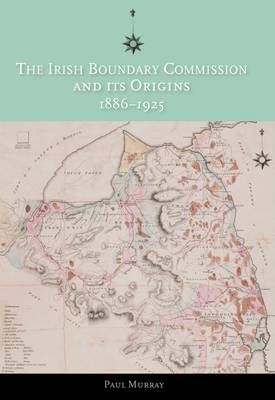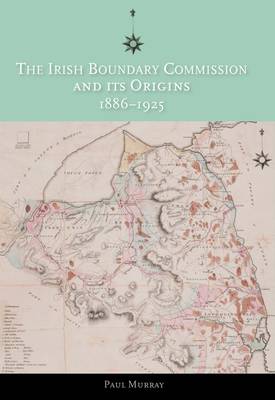
- Afhalen na 1 uur in een winkel met voorraad
- Gratis thuislevering in België vanaf € 30
- Ruim aanbod met 7 miljoen producten
- Afhalen na 1 uur in een winkel met voorraad
- Gratis thuislevering in België vanaf € 30
- Ruim aanbod met 7 miljoen producten
Zoeken
€ 40,45
+ 80 punten
Omschrijving
In this comprehensive history of the Irish Boundary Commission, Paul Murray looks at British attempts from 1886 on to satisfy the Irish Nationalist demand for Home Rule, Ulster and British Unionist resistance to this demand, the 1920 partition of Ireland and the 1921 Anglo-Irish Treaty, where the roots of the establishment of the Commission are to be found. The evidence presented at the Commission and the principles on which it based its decisions are analysed against the background of evolving British views on the dangers posed for British and Unionist interests on both islands by a radical redrawing of the 1920 border. New documentary evidence is brought to bear on the motivation of its Chairman Justice Feetham, his susceptibility to external influences, and the significance of his political background as possible factors in his final decisions. The history of the Irish Boundary Commission is shown to also be part of a larger European narrative. This study is, thus, the first large-scale attempt to consider its significance in its wider international context.
Specificaties
Betrokkenen
- Auteur(s):
- Uitgeverij:
Inhoud
- Aantal bladzijden:
- 368
- Taal:
- Engels
Eigenschappen
- Productcode (EAN):
- 9781906359614
- Verschijningsdatum:
- 28/04/2011
- Uitvoering:
- Paperback
- Formaat:
- Trade paperback (VS)
- Afmetingen:
- 155 mm x 231 mm
- Gewicht:
- 589 g

Alleen bij Standaard Boekhandel
+ 80 punten op je klantenkaart van Standaard Boekhandel
Beoordelingen
We publiceren alleen reviews die voldoen aan de voorwaarden voor reviews. Bekijk onze voorwaarden voor reviews.











